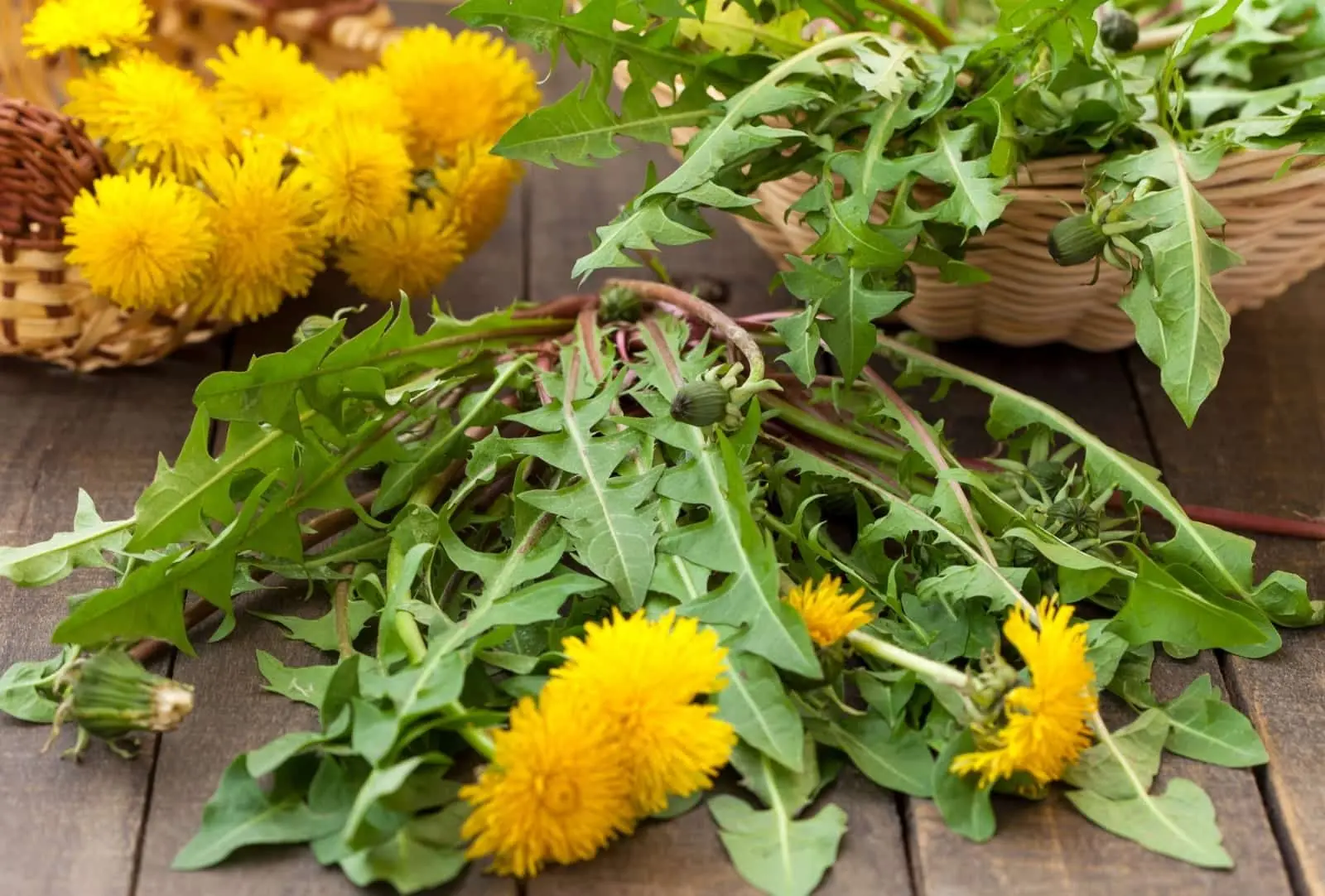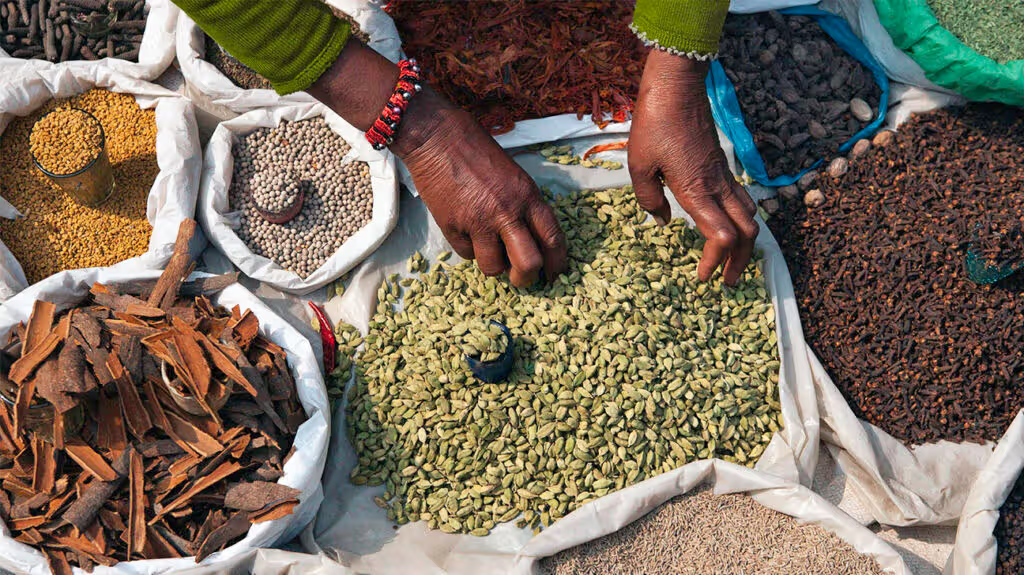Are you trying to lose weight naturally and wondering what herbs and spices are good for weight loss? Adding the right seasonings to your diet not only boosts flavor but can also fire up your metabolism, curb cravings, balance blood sugar, and promote fat burning. With scientific studies supporting the benefits of certain herbs and spices, you can confidently spice up your meals as part of a holistic weight management plan.
In this comprehensive guide, you’ll learn which herbs and spices support weight loss, how they work, actionable ways to use them every day, and practical tips tailored for health-conscious eaters and anyone eager to harness nature’s pantry for better results.
The Science Behind Herbs and Spices for Weight Loss
Herbs and spices can promote weight loss by:
- Boosting metabolic rate and thermogenesis
- Reducing hunger and controlling appetite
- Regulating blood sugar to prevent cravings
- Supporting fat oxidation and breakdown
- Providing antioxidants to reduce inflammation, which may hinder fat loss
Numerous herbs and spices have been shown to deliver these effects when combined with a healthy diet and active lifestyle.
What Herbs and Spices Are Good for Weight Loss?
1. Cayenne Pepper
Cayenne pepper owes its metabolic benefits to capsaicin, a compound proven to increase energy expenditure, boost calorie burning, and even suppress appetite. Eating cayenne pepper with meals can help you feel fuller and may reduce your overall calorie intake.
How to use:
- Sprinkle on eggs, roasted veggies, or popcorn
- Add a pinch to smoothies or lemon water for a metabolism kick
- Use in chilies, soups, or homemade spice blends
2. Cinnamon
Cinnamon isn’t just a cozy spice—it helps stabilize blood sugar, reducing insulin spikes that trigger cravings and fat storage. Its compounds can mimic insulin activity, keeping you full and satisfied for longer.
How to use:
- Stir into oatmeal, yogurt, or smoothies
- Flavor coffee and herbal teas
- Add to curries, stews, or baked goods
3. Fenugreek
Fenugreek seeds help curb appetite and promote satiety thanks to their rich fiber content, which can aid in weight reduction and waist circumference improvement.
How to use:
- Soak seeds overnight and chew or drink the water
- Sprinkle powder onto salads, curries, or blend into smoothies
4. Ginger
Ginger’s thermogenic properties increase body temperature, metabolism, and help reduce hunger. Regular ginger consumption is shown to promote modest reductions in body weight, BMI, and body fat percentage.
How to use:
- Add fresh ginger to stir-fries, salads, or tea
- Incorporate into smoothies, marinades, or soups
- Mix powder into baked goods or granola bars
5. Turmeric
Curcumin, turmeric’s active antioxidant, helps reduce fat tissue growth and inflammation that can impair weight loss efforts.
How to use:
- Sprinkle into curries, roasted veggies, or rice
- Add to golden milk (turmeric latte)
- Pair with black pepper to boost absorption
6. Cumin
Cumin supports fat burning, increases metabolic rate, and stimulates the digestion of fats and carbohydrates. Studies indicate daily consumption can assist body fat reduction, especially when paired with diet and exercise.
How to use:
- Season soups, stews, beans, and lentil dishes
- Mix into marinades, spice blends, or homemade breads
7. Oregano
Oregano contains carvacrol, a unique compound shown to help regulate gene expression involved in fat synthesis and metabolism. It also provides potent antioxidant support.
How to use:
- Sprinkle fresh or dried oregano on salads, pasta, fish, and chicken
- Mix into salad dressings or dips
- Add to soups and stews for a Mediterranean touch
8. Black Pepper
The piperine in black pepper helps block fat cell formation, enhance digestion, and improve the bioavailability of other fat-burning nutrients, like curcumin in turmeric.
How to use:
- Add liberally to cooked vegetables, eggs, or meats
- Stir into soups and even fruit salads
- Pair with turmeric for maximum effectiveness
9. Cardamom
Cardamom’s thermal properties boost metabolism and promote body fat breakdown. It’s also known for its positive effects on blood pressure and digestion.
How to use:
- Add to your morning tea, smoothie, or coffee
- Use in rice dishes, curries, and baked goods
- Blend with cinnamon, cloves, or ginger for homemade spice mixes
10. Garlic
Garlic can help activate fat-burning cells and curb appetite, thanks to its bioactive sulfur compounds like allicin.
How to use:
- Mince into stir-fries, sauces, and soups
- Roast whole bulbs for a sweet, mellow flavor
- Mix into salad dressings and marinades
Actionable Tips for Incorporating Herbs and Spices Into Your Weight Loss Routine
- Start Simple: Choose 1–2 spices (like cinnamon or turmeric) to use consistently in breakfast or snacks.
- Spice Up Your Drinks: Add ginger, cinnamon, or cayenne to warm water, teas, or smoothies for a weight loss-friendly boost.
- Prep in Advance: Mix your own spice blends to use on veggies, proteins, and grains all week long.
- Try Functional Pairings: Combine black pepper with turmeric, or ginger with cinnamon for enhanced effects and flavor complexity.
- Rotate Spices: Changing up your spices prevents flavor fatigue and maximizes the spectrum of health benefits.
Sample Meal Plan Featuring Weight Loss Spices and Herbs
| Meal | Example Dish | Key Herbs/Spices |
|---|---|---|
| Breakfast | Oatmeal with cinnamon and ginger, topped with berries | Cinnamon, Ginger |
| Lunch | Grilled chicken salad with oregano and black pepper | Oregano, Black pepper |
| Snack | Hummus sprinkled with cayenne pepper | Cayenne pepper |
| Dinner | Lentil curry with cumin, turmeric, garlic, and fenugreek | Cumin, Turmeric, Garlic, Fenugreek |
| Beverage | Golden milk (turmeric, black pepper) or ginger-lemon tea | Turmeric, Black pepper, Ginger |
Safety and Best Practices
- Use up to 1 tablespoon (14 grams) of herbs/spices daily, and always start with small amounts to check for tolerance.
- If using concentrated supplements, follow dosage guidelines and consult a healthcare provider, especially if you have underlying health conditions or take medications.
- Varied, moderate use is more effective and sustainable than overreliance on one herbal remedy.
Lesser-Known Herbs and Spices Good for Weight Loss

While the “superstars” like cayenne, cinnamon, and turmeric get plenty of attention, several lesser-known herbs and spices can also play key roles in supporting a healthy weight loss journey.
1. Dandelion
Dandelion is often dismissed as a garden weed, but its leaves and roots are packed with nutrients and natural diuretic compounds.
- Benefits: Dandelion supports digestion, reduces water retention, and mildly suppresses appetite, which may help counter bloating often mistaken for fat gain.
- How to use: Brew dandelion tea from roasted roots or fresh leaves, or add young dandelion leaves to salads for a peppery, cleansing kick.
2. Mustard Seeds
Mustard seeds contain compounds that may enhance thermogenesis—the process by which the body burns calories to produce heat.
- Benefits: Some research suggests that mustard can increase metabolic rate by up to 25% for several hours after eating.
- How to use: Add mustard seeds to curries, lentil dishes, or homemade salad dressings for a satisfying, metabolism-revving crunch.
3. Ginseng
The adaptogenic root ginseng, widely used in traditional Chinese and Korean medicine, has been linked to fat burning and improved energy.
- Benefits: May reduce appetite, boost energy for physical activity, and help regulate blood sugar.
- How to use: Steep sliced fresh or dried ginseng in hot water as a tea, or use powder in smoothies and restorative soups.
4. Parsley
Parsley is far more than just a garnish; it’s a natural diuretic that can help combat excess water weight and support kidney function.
- Benefits: Flushes out toxins, supports digestion, and offers mild appetite control.
- How to use: Chop fresh parsley into salads, blend into green smoothies, or use as a topping for soups and roasted vegetables.
5. Fennel Seeds
Fennel seeds aid in digestion, help reduce bloating, and may suppress hunger between meals.
- How to use: Chew a teaspoon of fennel seeds after meals or brew them into a soothing tea.
The Role of Herbs and Spices in Holistic Weight Management

Weight loss success isn’t just about calories in and calories out; hormonal balance, stress levels, inflammation, and digestion play vital roles. Herbs and spices support these systems in unique ways.
Supporting Gut Health and Digestion
Many herbs—such as peppermint, coriander, and fennel—help soothe the stomach, ease bloating, and improve the movement of food through the intestines. A healthy gut is linked to better metabolism and reduced cravings.
- Try It: Enjoy peppermint tea after meals or add fresh coriander to salsas and chutneys to aid digestion.
Fighting Stress-Related Weight Gain
Chronic stress can make it harder to lose weight by increasing cortisol, which encourages fat storage. Adaptogenic herbs like ashwagandha, holy basil (tulsi), and licorice root help regulate the body’s stress response.
- Try It: Incorporate ashwagandha powder into smoothies or sip on tulsi herbal tea as a calming ritual.
Reducing Inflammation
Low-level inflammation slows down metabolism and hampers weight loss. Turmeric, rosemary, and cloves contain potent anti-inflammatory compounds that support a healthy, lean body.
- Try It: Add rosemary and cloves to roasted vegetables or use turmeric liberally in soups and curries.
Global Traditions: How Cultures Use Herbs and Spices for Weight and Wellness

Different cultures have long integrated herbs and spices for medicinal effects, including weight management.
In the Mediterranean
- Oregano, rosemary, and thyme are used daily to flavor vegetables, fish, and legumes—boosting meal satisfaction and health without added calories.
In South Asia
- Fenugreek, cumin, turmeric, coriander, and cardamom are not just flavor staples but also digestive aids and metabolic enhancers in dals, curries, and masalas.
In East Asia
- Ginger, garlic, and green tea (often paired with ginseng) are woven into the cuisine for warming properties and to support fat burning.
In Latin America
- Cayenne, paprika, and cilantro add heat and zing to salsas and stews that help moderate appetite and increase diet variety.
Scientific Research and How Herbs and Spices Actually Work

Appetite Suppression
Many weight-loss promoting herbs and spices act on the neurochemicals in your body that regulate fullness. For instance, fenugreek increases satiety due to its fiber content, while ginger and cardamom may affect serotonin to reduce cravings.
Metabolic Boost
Capsaicin (cayenne), curcumin (turmeric), and piperine (black pepper) enhance heat generation and energy expenditure, which may translate to increased daily calorie burn.
Blood Sugar Control
Cinnamon, fenugreek, and ginger help improve how your body processes insulin and sugar, reducing the likelihood of energy crashes and binge-eating episodes.
Fat Blocking and Detoxification
Some herbs, like dandelion and parsley, act as gentle diuretics, while others like cumin may help the body break down and metabolize fats more effectively.
Practical Ideas to Add More Herbs and Spices for Weight Loss
- Weekly Meal Prep: Make a large batch of roasted vegetables with a different spice blend each week—try curry powder, Italian herbs, or a homemade southwest spice mix.
- Spiced Water: Infuse your water with slices of ginger, lemon, and a few mint leaves for a refreshing, metabolism-friendly drink.
- DIY Salad Dressings: Whisk olive oil with mustard seeds, garlic, oregano, and a splash of lemon for a tangy, herb-packed dressing.
- Spice Rubs for Proteins: Coat chicken, tofu, or fish with a mix of turmeric, cumin, coriander, and black pepper before grilling or baking.
- Warming Herbal Teas: Sip blends of cinnamon, ginger, fennel, or peppermint throughout the day to reduce hunger and support digestion.
How to Select, Store, and Use Herbs and Spices for Maximum Benefit
- Buy whole spices when possible and grind at home to preserve oils and potency.
- Store herbs and spices in airtight containers away from light and heat. Use within 6-12 months for best results.
- Balance flavor and quantity: Start small and increase to taste to avoid overpowering dishes or causing digestive upset.
- Be mindful of supplements: For strong herbs like ginseng or ashwagandha, consult a healthcare professional for guidance.
Conclusion
Spices and herbs such as cayenne pepper, cinnamon, fenugreek, ginger, turmeric, cumin, oregano, black pepper, cardamom, and garlic are scientifically linked with improved metabolism, reduced appetite, and enhanced fat burning. Consistently including these natural ingredients in your meals—paired with a calorie-controlled diet and active lifestyle—can help make weight loss delicious, sustainable, and effective.
